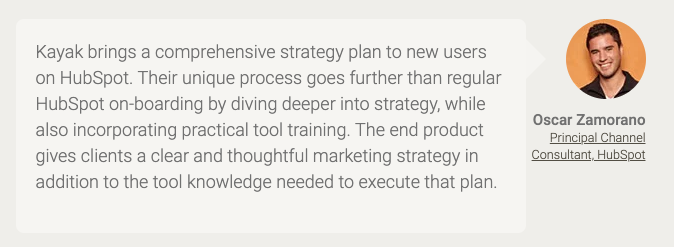
As you undoubtedly know by now, it’s a good thing to have your business or website being discussed in the right circles. Links between a High-rise Window Washing business and a Truffles Kiosk aren’t likely to be relevant.
Inbound links – those pointing from reputable websites to yours – are the cornerstone of search engine optimization (SEO). And, being referred to positively by peers or members of the press is always helpful when it comes to establishing your credibility.
However, there are differences between links, citations, and mentions that online marketers should be aware of. They aren’t necessarily used the same way, and they might not have equal value depending on what you are trying to accomplish with your lead generation campaigns.
With that in mind, let’s take a closer look at each one to see if we can make sense of the subtleties…
A link to your website is pretty easy to understand. You get one when someone else, maybe a blogger or from another business, links to you from one of their pages. You could be listed as a resource to the business, for example, or get a link pointing directly to an article you had written that might be particularly informative for someone else’s readers.
The important thing for a marketer to know about inbound links is that quality means everything. Unless the website linking to yours is credible and relevant to your business, it won’t benefit you in any way.
To give you a sense of how this works, imagine for a moment that you have a website to promote your stationery supplies store. Getting a link from your friend down the street who owns a bakery isn’t going to do anything for you.

Links between a High-rise Window Washing business and a Truffles Kiosk aren’t likely to be relevant.
Google will recognize the link as being not relevant, and very few people are taking paper recommendations from the shop where they buy cakes. Now, if you had a catering service, a link from the bakery would be very smart.
Taking it up a notch we can see that, a link to your stationery website from a school board, or an executive pens store, could give you a big boost in visibility. Both of these are closely aligned with the type of business you have, and thus Google is going to regard them very highly.
Understanding this simple principle can help you to see where so many companies get links all wrong. Earning a link from your local business council or a trade publication helps you in numerous ways because they bestow credibility on many levels.
We can also see that buying links from an overseas ‘SEO’ firm can do more to hurt your cause than help because it just shows you’re trying to game the system rather than build your company’s reputation.
Good links aren’t easy to come by which is why they are so valuable. Commit to getting the right ones and recognize that it’s going to take a little bit of time.
You might remember using citations for papers you wrote in high school or college, and they work in a similar way in the digital world. Citations are essentially links that can be used as a reference point to verify or support a piece of information found elsewhere (for instance, on a blog post).
For this reason, they have special value to Google – not to mention real-life buyers. Citations coming from certain types of websites can even give you the same kind of SEO boost as a strong backlink. That’s one reason it’s so important to have up-to-date information on business profile sites like Yelp, the Better Business Bureau, and other relevant market or industry pages.
Exactly which pages those might be could depend a lot on the type of business you operate. Going back to our catering store example, a link from HomeStars wouldn’t be worth much. Again, it’s not relevant. However, a profile on TripAdvisor could be a very important citation if it’s a recommended dining place.

A review from a HubSpot Team member to a HubSpot Partner agency would be stellar.
And, a listing there with lots of positive reviews would increase the caterer’s reputation potential, as well. Similarly, a real estate firm could benefit greatly from citations originating with local real estate boards or new community directories.
The important thing to remember about citations is that they are largely about visibility and credibility. Some of them can accumulate naturally as you register your business with the appropriate governmental agencies and regulatory boards.
Others require a bit more work to establish and maintain. In all cases, they need to have the right categories and contact details shown. Otherwise, your company could be confused with another one.
Citations are easier to accumulate than some other kinds of inbound links and have a huge effect on your ability to appear in local search listings. It doesn’t take any special effort to accumulate them, so they should be a cornerstone of your online marketing strategy.
Marketers tend to focus on links and underestimate the power of citations. However, many aren’t even aware that they should be paying attention to mentions at all.
Mentions can take a lot of different forms, but they generally refer to instances where a specific business, company, or website is referred to online.
There may not be an accompanying link (or one with a “nofollow” tag) so it’s assumed they don’t have any SEO value, particularly when it comes to SEO. However, that assumption isn’t entirely correct.
It has been a badly-kept secret that Google has been watching mentions and “nofollow” links for several years. Although we don’t know exactly how they score them, we do know that they contribute positively to search engine visibility. Likewise, it never hurts to have prospects reading about you or your business on reputable forums.
Knowing that it’s easier to understand why there is a real benefit in being promoted through the local media or industry press. And, you can understand why online reviews, testimonials, or even social mentions can help you build your online reputation.
These mentions might not have the obvious SEO power of an actual inbound link, but that doesn’t mean they don’t count – particularly if the referring website is one people know and trust.
At Kayak Marketing – our parent company – we aren’t just known throughout North America because we build high-calibre websites. That’s an important part of our work, but clients love us because we can help them to establish themselves as industry leaders and dramatically improve their lead generation results through a more holistic approach to all aspects of digital marketing, including a modern approach to SEO.
If that sounds like the kind of help you want, and you are ready to rebuild your online marketing campaign from the ground up, contact us today so we can schedule a free consultation.